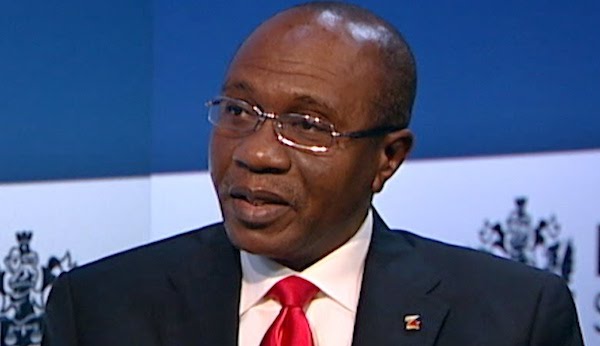Business
No going back on restrictions placed on cryptocurrency transactions – CBN

The Central Bank of Nigeria (CBN) said on Sunday it would continue to educate Nigerians on the danger associated with cryptocurrency transactions despite criticism by groups and individuals in the country.
The apex banks had on Saturday directed banks to close accounts of persons or entities involved in cryptocurrency transactions in the country.
The directive led to criticism of CBN with many Nigerians including former Vice President Atiku Abubakar asking the bank to rescind the decision.
But in a statement issued by its Acting Head of Corporate Communications, Osita Nwanisobi, CBN said it is determined to protect the country’s financial system from activities of fraudsters and speculators.
According to CBN, China, Canada, Taiwan, Indonesia, Algeria, Egypt, Morocco, Bolivia, Kyrgyzstan, Ecuador, Saudi Arabia, Jordan, Iran, Bangladesh, Nepal, and Cambodia have all placed certain level of restrictions on financial institutions facilitating cryptocurrency transactions.
The statement read: “The attention of the Central Bank of Nigeria (CBN) has been drawn to various comments and reactions following our recent reminder to Deposit Money Banks (DMBs) to desist from transacting in / and with entities dealing in cryptocurrencies. Most of these reactions reveal that there appears to be a need to provide further justifications about our position, especially to the general public.
“For those who are not conversant with the universe of cryptocurrencies, it is important to state that cryptocurrencies are digital or virtual currencies issued by largely anonymous entities and secured by cryptography.
READ ALSO: CBN bans Nigerians from buying, selling bitcoin, other cryptos
“Cryptography is a method of encrypting and hiding codes that prevent oversight, accountability, and regulation. While there are a number of cryptocurrencies now in circulation, Bitcoin was the first to be introduced in 2009, and now accounts for about 68 percent of all cryptocurrencies.
“As regards our recent policy pronouncement, it is important to clarify that the CBN circular of February 5, 2021, did not place any new restrictions on cryptocurrencies, given that all banks in the country had earlier been forbidden, through CBN’s circular dated January 12, 2017, not to use, hold, trade and/or transact in cryptocurrencies. Indeed, this position was reiterated in another CBN Press Release dated February 27, 2018.
“It is also important to note that the CBN’s position on cryptocurrencies is not an outlier as many countries, central banks, international financial institutions, and distinguished investors and economists have also warned against its use. They have all made similar pronouncements based on the significant risks that transacting in cryptocurrencies portend- risk of loss of investments, money laundering, terrorism financing, illicit fund flows, and criminal activities.
“China, Canada, Taiwan, Indonesia, Algeria, Egypt, Morocco, Bolivia, Kyrgyzstan, Ecuador, Saudi Arabia, Jordan, Iran, Bangladesh, Nepal, and Cambodia have all placed certain level of restrictions on financial institutions facilitating cryptocurrency transactions.
“In China, for example, cryptocurrencies are completely banned and all exchanges closed as well. Banks and other financial institutions are not allowed by law to transact or deal with cryptocurrencies. China’s Central Bank, called the Peoples Bank of China (PBoC) has provided several directives ruling out the use of these currencies.
“The PBOC views cryptocurrencies as illegal because they are not issued by any recognized monetary institution and do not hold any legal status that can make them equivalent to money. Hence banks and all stakeholders are strongly advised against their use as a currency.
“Even famed investor Warren Buffett has called cryptocurrencies ‘rat poison squared,’ a ‘mirage,’ and a ‘gambling device.’ Mr. Buffett believes it is a ‘gambling device’ given that they are mostly valuable because the person buying it does so, not as a means of payment; but in the hope they can sell it for even more than what they paid at some point.
“During an online forum hosted by the Davos-based World Economic Forum a few weeks ago, Andrew Bailey, the Governor of the Bank of England, highlighted the extreme price volatility of cryptocurrencies as one of the biggest flaws and explained that this flaw makes it impossible for them to be used as a lasting means of payment.”
Join the conversation
Support Ripples Nigeria, hold up solutions journalism
Balanced, fearless journalism driven by data comes at huge financial costs.
As a media platform, we hold leadership accountable and will not trade the right to press freedom and free speech for a piece of cake.
If you like what we do, and are ready to uphold solutions journalism, kindly donate to the Ripples Nigeria cause.
Your support would help to ensure that citizens and institutions continue to have free access to credible and reliable information for societal development.






















